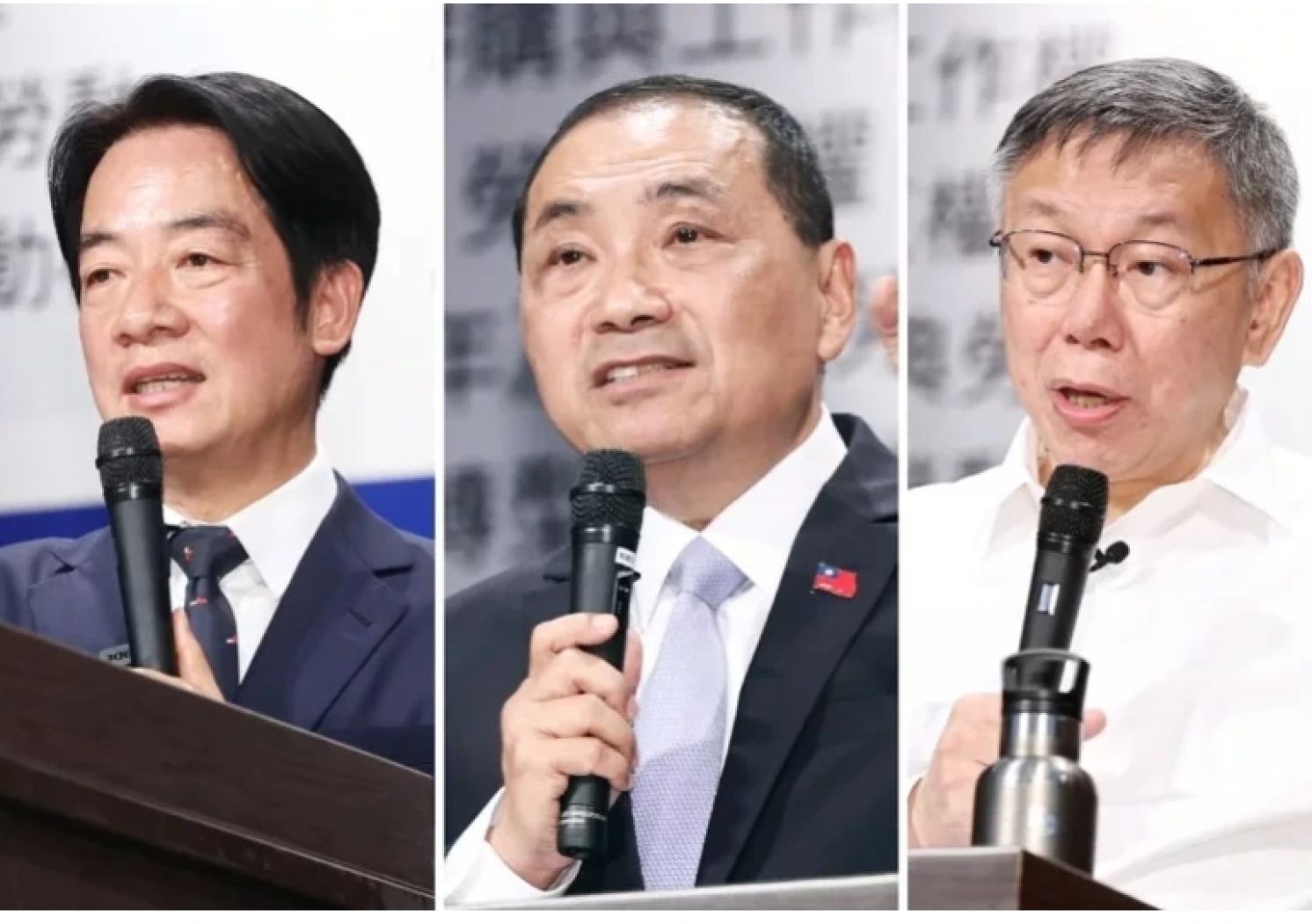
Lai's Victory Should Not Be Interpreted As Referendum on Cross-Strait Relations
By Wang Hsin-hsien
United Daily News, January 15, 2024
The 2024 presidential election has concluded. The Democratic Progressive Party's (DPP) ticket of William Lai and Bi-khim Hsiao won the election with 40 percent of the vote. In the Legislative Yuan, none of the three major parties, Kuomintang (KMT), DPP, or Taiwan People’s Party (TPP), won a majority. Thus, there is a possibility of forming a "small ruling party, large opposition" political pattern. On cross-strait relations post-election, we have the following perspectives:
First, since this election took place amid the strategic competition between the United States and China, as well as significant international conflicts such as the war in Ukraine, much of the international press has interpreted the election results as Taiwanese people supporting the DPP's continued governance to counter Communist China. However, the main theme of the 2020 election, the “sense of national doom” has been significantly diminished in this election. The primary topics are political party alliances, candidate characteristics, and domestic policy issues. It should not be hastily interpreted as a "referendum" on cross-strait relations, especially since the winning duo received only 40% support. Vice President Lai's statements at the international press conference about the "Taiwanese people successfully resisting external forces' intervention" and the "choice between democracy and authoritarianism" align with the similar tone of excessive interpretation by some individuals on the other side of the Taiwan Strait.
Second, Communist China has long classified Mr. Lai as a "complete advocate for Taiwan independence" and characterized the Lai-Hsiao ticket as "doubling down” on independence. It marks the first time that our presidential candidate has been "categorized" before the election even took place. Therefore, observations of the new government's actions have begun since the "victory remarks" rather than the "520 inaugural speech." Although Vice President Lai mentioned the constitutional framework of the Republic of China, peace and stability, maintaining the status quo, and communication and dialogue in the international press conference after winning, seemingly adopting a conciliatory tone, Beijing is likely unsatisfied. This is primarily due to Lai’s consistently referring to the other side as "China," summarizing the cross-strait relations of the past eight years as President Tsai Ing-wen expressing goodwill while the mainland did not respond, and the interpretation of the election results as resisting external forces' intervention. Compared to Tsai’s victory speech in 2016, it is evident that the new government is more distant from Beijing.
Furthermore, both mainland China’s Taiwan Affairs Office (TAO) of the State Council and their Ministry of Foreign Affairs have issued statements. Several points are worth noting:
- Regarding the essence of cross-strait relations, the TAO mentioned "Taiwan is China's Taiwan," while the Ministry of Foreign Affairs stated that the "Taiwan issue is China's internal affair," indicating a narrowing space for maneuver.
- In terms of cross-strait political positioning, the TAO mentioned "the 1992 Consensus that embodies the ‘One China’ principle,” which is more tightened up than previous statements of the "One China” principle and “1992 Consensus.” The Ministry of Foreign Affairs went further by directly stating that the “One China” principle is the guiding principle for maintaining peace and stability in the Taiwan Strait," omitting any reference to the "1992 Consensus" and returning to a more strategically clear position.
- Statements from either the TAO or mainland China’s Ministry of Foreign Affairs do not deviate from anti-independence, pro-unification, pro-integration, opposition to external interference, etc. It seems that the mainland has not entirely decided how to respond to the election results, primarily focusing on the implications of the "minority president" and the "small ruling party, large opposition" connotation in cross-strait relations. Beijing’s careful consideration is needed to avoid sending the wrong signals. This also implies that the statements from the TAO and Ministry of Foreign Affairs are only the "appetizer," and we must respond cautiously.
Finally, this election is no longer just our own election but involves the development of U.S.-China relations. Despite differences between the United States and China, there is a consensus on managing military risks in the Taiwan Strait, as evident from the "Biden-Xi Summit" in November last year and subsequent developments. The Biden administration does not want any disruptions in cross-strait relations before the U.S. elections in November, avoiding a more assertive challenge from Trump. Therefore, President Biden reiterated non-support for Taiwan independence, and Secretary of State Blinken reaffirmed the U.S. "One China” policy, directing these statements towards Beijing. The United States is extremely cautious on issues that may trigger a Taiwan Strait crisis, leading to the dispatch of a high-level bipartisan delegation to Taiwan right after the election.
Multiple factors affect Taiwan’s security. Externally, these factors include the strategic competition between the United States and China, ongoing conflicts (such as the Russo-Ukrainian war and the Israel-Hamas war), and frequent elections around the globe that could bring about internal political competition and diplomatic repercussions. Internally, the "minority president" and the lack of a majority party in the Legislative Yuan will result in the maneuvering of attack and defense and other political effects. President Tsai, incoming President Lai, and the national security team should focus more on professionalism and continuity to address potential changes and ensure Taiwan's security and peace in the Taiwan Strait.
The author is distinguished professor at the Graduate Institute of East Asian Studies and deputy director of the Institute of International Relations, National Chengchi University.